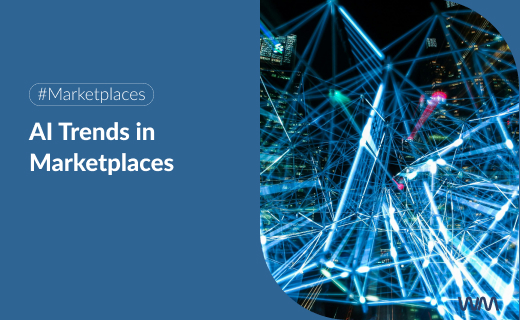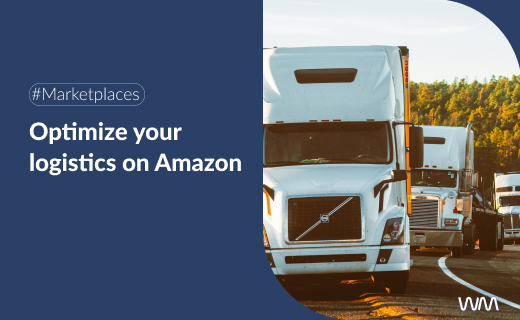AI Can Revolutionize the Marketplace Ecosystem
Artificial intelligence (AI) holds transformative power in the e-commerce sector, particularly in the marketplaces operating in our country. More and more sellers and platforms are integrating AI solutions to enhance the user experience, automate processes, and optimize sales strategies. From personalizing the shopping experience to fraud detection and automating customer service, AI has become a highly useful tool in the sector.
The rise of AI in marketplaces is largely due to the growth of online commerce in Spain. According to the Spanish National Commission on Markets and Competition (CNMC in Spanish), e-commerce in Spain generated over €72 billion in 2022, with the trend continuing to rise. In this context, AI is playing a key role in improving the efficiency and profitability of marketplaces.
AI Adoption in E-Commerce in Spain
A recent study by Salesforce reveals that 79% of e-commerce companies in Spain already use AI in some of their operations. Here are some of the most interesting statistics about AI in e-commerce and marketplaces:
-
35% have fully implemented AI.
-
44% are in experimental phase.
-
19% are evaluating its implementation.
-
Only 3% have no plans to integrate it.
The impact of AI is not limited to large companies. 64% of SMEs in Spain are already using AI, mainly for content generation, sales forecasting, and marketing optimization.
Key AI Applications in Marketplaces
AI has revolutionized how marketplaces like Amazon operate. Some of its most relevant applications include:
1. Listing Automation and Content Generation
Amazon already uses generative AI to automatically create product descriptions, optimizing content quality and improving internal SEO. Platforms like Shopify and eBay have also started adopting AI tools to help sellers generate attractive descriptions and titles automatically.
2. Dynamic Pricing and Sales Forecasting
Marketplaces apply AI to adjust prices in real-time based on demand, competition, and consumer behavior. This allows for greater competitiveness and revenue optimization. According to a report from McKinsey, companies that have implemented AI-based pricing strategies have increased their revenue by 5% to 10% compared to those still using traditional models.
3. Chatbots and Customer Service
72% of consumers prefer interactions with chatbots that resolve issues immediately. Platforms like AliExpress and Amazon have integrated AI-powered virtual assistants to improve customer service. These chatbots can handle up to 80% of basic inquiries, significantly reducing the workload of human teams and enhancing the customer experience by providing immediate support.
4. Personalization and Product Recommendations
AI algorithms analyze user behavior to offer personalized recommendations. This has increased conversion rates in marketplaces by up to 35%. An Accenture report indicates that 91% of consumers are more likely to purchase from online stores that offer personalized recommendations.
5. Fraud Prevention
AI is also used to detect suspicious transaction patterns and prevent fraud, protecting both sellers and consumers. It is estimated that marketplaces implementing AI-based fraud detection technologies can reduce fraudulent transactions by up to 50%.
The Impact of AI on Consumer Experience
AI is changing how consumers interact with marketplaces:
-
31.1% of buyers expect AI to help them search for products.
-
22.6% value receiving personalized recommendations.
-
37% believe AI makes online shopping easier and more enjoyable.
-
60% of marketplace users feel AI has improved how they discover new products.
Additionally, voice recognition and visual search are becoming key tools in the shopping experience, allowing consumers to find products with greater precision and speed.
Future AI Trends in Marketplaces
1. Integration with the Metaverse and Augmented Reality
Immersive shopping experiences with AI will allow consumers to virtually try products before buying them. Companies like Meta and Shopify are already exploring AI integration with augmented reality to enhance shopping.
2. Increased Logistics Automation
The use of AI to optimize delivery routes and warehouse management will reduce costs and improve delivery speed. It is estimated that marketplaces implementing AI in their supply chains could reduce logistics costs by up to 20%.
3. Expansion of Voice Commerce
There is expected to be an increase in the use of voice assistants like Alexa and Google Assistant for making purchases directly through voice commands. In the U.S., 55% of households already use voice assistants for shopping, and this trend is expected to grow in Spain and Europe in the coming years.
Conclusion
Artificial intelligence is already a reality in the marketplace sector in our country, and it will continue to grow in the coming years. From catalog automation to personalizing the shopping experience, AI has great potential to redefine e-commerce.
Sellers who adopt these technologies will be able to optimize their operations, improve their customers’ experience, and increase their competitiveness in the market. With the evolution of e-commerce, AI can become a determining factor in the differentiation and success of businesses in marketplaces.
Do you want to know more about how Wannme can help you increase your sales? Contact us.






